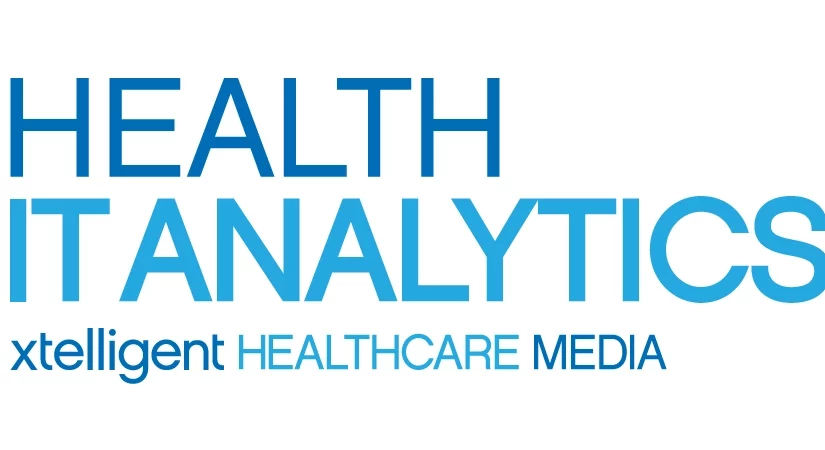In observation of Black Maternal Health Week, Parkland Community Health Plan (PCHP), in partnership with Parkland Center for Clinical Innovation (PCCI) want to highlight our efforts in Dallas to prevent preterm births, which is especially impactful on women in under-served communities.
 To better serve pregnant women in our community, PCCI and PCHP developed and implemented an innovative maternal health program that uses a machine learning algorithm, healthcare data and Non Medical Drivers of Health to identify pregnant women who are at a higher risk of pre-term birth. The program engages these women through text messages designed to help them be proactive in seeking care during pregnancy.
To better serve pregnant women in our community, PCCI and PCHP developed and implemented an innovative maternal health program that uses a machine learning algorithm, healthcare data and Non Medical Drivers of Health to identify pregnant women who are at a higher risk of pre-term birth. The program engages these women through text messages designed to help them be proactive in seeking care during pregnancy.
Proactive care is critical because American women are more likely to die from pregnancy-related causes than women in other high-income nations and their own mothers a generation before. National severe maternal morbidity (SMM) rates have nearly doubled over the past decade, and the occurrence of SMM was 166% higher for African American women than white women from 2012 to 2015. More broadly, African American and Latino women, as well as socioeconomically disadvantaged populations, are disproportionately affected by poor health outcomes due to pregnancy related causes.
“One of the major risk factors for pregnant mothers and newborn babies is pre-term birth,” said John Wendling, chief executive officer of Parkland Community Health Plan. “Apart from adding to the risk during delivery itself, there are so many other long-term health and well-being risks for the mother and the child when a baby is born prematurely.”
The rate of preterm birth in Texas is highest for Black infants (14%) followed by American Indian/Alaska Natives (11%), and Hispanics (10.6%). In 2019, in Texas, 1 in 9 babies was born preterm. While there are many efforts to address poor maternal health outcomes in the US, most focus on preventing deaths during labor and delivery. Not enough attention is paid to the larger environmental context and non-traditional risk factors such as educational achievement, body mass index, socioeconomic status and mental and behavioral factors.
“As a local community health plan, we need to protect our at-risk pregnant women and the program we partnered with PCCI on is a very effective way to help,” said Wendling. “This program is a great example of a health plan utilizing sophisticated AI, Non Medical Drivers of Health and digital technology to improve patient engagement and experience. The long-term result is that we’ve positively affected the overall health and wellness of families in our community.”
The program has been running successfully for over three years in seven counties in North Texas and has risk stratified 40,000 unique pregnancies. We’ve seen preterm births reduced by 20% during this period. In a survey of the program participants, 73% of respondents agreed this program made them better prepared to take care of themselves and their babies.
“Not enough funding in healthcare innovation goes towards serving the vulnerable populations and that has exacerbated the digital divide,” Steve Miff PhD, president and chief executive officer of PCCI. “This pre-natal program with PCHP is a powerful application of advanced data science and technology at the point of care that focuses on the whole person to improve lives for the most vulnerable.”
PCCI’s Vikas Chowdhry, MBA (chief analytics and information officer) and Dr. Yolande Pengetnze (senior medical director) have helped oversee the success of the program in collaboration with key stakeholders at PCHP including Dr. Mark Clanton (chief medical officer) and Paula Turicchi (chief strategy officer). PCCI has filed for several patents related to this platform.
“In addition to PCCI’s technology created to use data analytics for maternal and pediatric health, this cutting-edge platform has been key to impacting innovation for COVID-19 related work, Parkland Health and Hospital System and Dallas County,” Miff said. “This unparalleled use of machine learning algorithm, healthcare data and Non Medical Drivers of Health to create practical, usable solutions will continue to impact of this investment in Dallas county and beyond.”

About the author
Vikas Chowdhry, MS, MBA, is PCCI’s Chief Analytics and Information Officer with 15+ years of healthcare experience. He works closely with data science and clinical teams at PCCI to develop machine learning driven technologies and products that can empower clinical and social services providers and individuals to create communities that are healthier and more productive.
##






 To better serve pregnant women in our community, PCCI and PCHP developed and implemented an innovative maternal health program that uses a machine learning algorithm, healthcare data and Non Medical Drivers of Health to identify pregnant women who are at a higher risk of pre-term birth. The program engages these women through text messages designed to help them be proactive in seeking care during pregnancy.
To better serve pregnant women in our community, PCCI and PCHP developed and implemented an innovative maternal health program that uses a machine learning algorithm, healthcare data and Non Medical Drivers of Health to identify pregnant women who are at a higher risk of pre-term birth. The program engages these women through text messages designed to help them be proactive in seeking care during pregnancy.